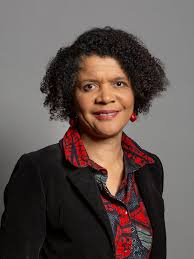
ABOUT CHI ONWURAH LABOUR UK MP
I was born in Wallsend, grew up on Hillsview Avenue in Kenton and went to Kenton School before studying Electrical Engineering in London. I have lived in many different cities around the world, without ever for a moment forgetting where I am from: Newcastle. My values and beliefs were formed in Newcastle based on the people I grew up with and my own experiences.
My family
My maternal grandfather was a sheet metal worker in the shipyards of the Tyne during the depression. My mother grew up in poverty in Garth Heads on the quayside. In the fifties she married my father, a Nigerian student at Newcastle Medical School. In 1965 I was born, whilst they were living in Long Benton where my father had a dental practise. I was still a baby when my father took us to live in Awka, Nigeria. But two years later the Biafran Civil War broke out bringing famine with it and, as described vividly in an Evening Chronicle article in 1968, my mother, my brother and sister and I returned as refugees to Newcastle, whilst my father stayed on in the Biafran army.
This early experience of the impact of war on ordinary families left me with a strong sense of my own good fortune in living in a peaceful parliamentary democracy where it is possible to bring about change without taking up the gun or the sword. I am not a pacifist, I believe that our country is worth defending and fighting for. But we do live in a democracy and, increasingly, there are international institutions at the European and global level to enable us to pursue and defend our legitimate interests through debate and discussion.
My education
I benefited from a comprehensive, inspirational and free education for which I will always be grateful. I attended Hillsview nursery, infants and junior schools. A good start in a good school is critical in determining a child’s experience of education and the opportunities that it can bring. At Hillsview I learnt to enjoy learning, and to think that anything was possible. My mother made sure I understood how lucky I was to be able to walk two hundred yards to a great school when some children had to walk for hours to share a classroom with a hundred others.
At 11 I went to Kenton Comprehensive School. I studied for my O and A levels, but also played for our netball and hockey teams, had my first taste of public speaking and learnt to play the saxophone moderately badly. My education enabled me to hold my own with people from every walk of life, and to earn my living doing something I love, engineering. I want every child in Newcastle to have that opportunity. When I was 17 I was elected Kenton School’s MP in a mock election.
My working life
Newcastle’s great industrial past was my inspiration to become an engineer and I enjoyed a fulfilling career in engineering after I graduated from Imperial College in 1987. I worked in hardware and software development, product management, market development and strategy for a variety of mainly private sector companies in a number of different countries – UK, France, US, Nigeria, Denmark. During this time I also studied for an MBA from Manchester Business School and gained Chartered Engineering status. As an engineer I specialised in building out infrastructure in new markets and standardising wholesale Ethernet access. My last role before entering parliament was as head of Telecoms Technology for Ofcom the Communications Regulator
My interests
I have always campaigned for the causes I believed in. As a student I campaigned against the Federation of Conservative Students at Imperial College. Later I was very active in the Anti Apartheid Movement, and spent many years on its National Executive, and that of its successor organisation, ACTSA. Anti apartheid was one of the most successful popular movements ever and undermines the claims of those that believe real people are never interested in politics. People are interested in the politics that matters to them. Before being selected as Labour’s candidate for Newcastle I was on the Advisory Board of the Open University Business School, reflecting my belief in educational opportunity at every stage in life and for every level of ability.Outside of politics and work I enjoy music, reading and long walks in the countryside.
 Premium News
Premium News